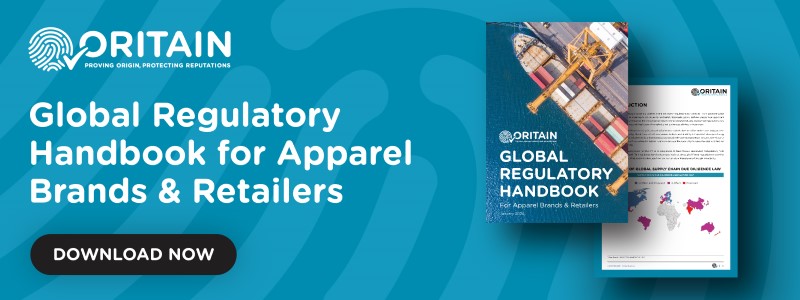How the New York Fashion Act Will Affect the Cotton and Textile Sector
By Ben Tomkins | 1 February 2024
minutes to read.

The New York Fashion Act, or the Fashion Sustainability and Social Accountability Act, is the first legislation of its kind worldwide to propose sustainability requirements for the fashion industry and retail sellers. The law mandates fashion brands generating over $100 million and selling in New York to disclose impacts like greenhouse gas emissions and chemical use by mapping at least 50% of their supply chains.
Objectives of the Fashion Act
The Fashion Act serves a two-fold purpose:
- Environmental and social due diligence: It mandates retail sellers and manufacturers to disclose their policies on environmental and social due diligence.
- Community benefit fund: It establishes a beneficial fund aimed at implementing environmental projects that significantly benefit environmental justice communities.
Current status of the Fashion Act
Introduced in October 2021 by Senator Alessandra Biaggi, the Fashion Act is currently under consideration in the New York legislature.
Who is affected?
The Fashion Act applies to global apparel/footwear manufacturers and retail sellers that meet the following criteria:
- Engage in business activities in New York
- Exceed $100 million in revenue
The Act's jurisdiction is comprehensive, covering companies both with and without physical storefronts in New York, as long as they actively engage in transactions for financial gain or profit.
Key reporting requirements
The Fashion Act imposes crucial reporting obligations on businesses, which include:

Supply chain mapping
The act mandates fashion brands to thoroughly map at least 50% of their supply chain, ensuring transparency from the farms and factories to the final product that reaches consumers. This includes disclosing suppliers, especially those operating in high-risk areas notorious for forced labor.

Due diligence disclosure
Annually, companies must publish a social and environmental sustainability report that outlines their efforts to identify, prevent, mitigate, and account for potential environmental and social risks.

Impact disclosure
Companies must disclose their actual and potential negative environmental and social impacts, such as greenhouse gas emissions, water and chemical management, use of recycled materials, and labor conditions.

Impact reduction targets
Companies are required to set annual reduction targets for their environmental footprint, including greenhouse gas emissions, with clear timelines and measurable benchmarks for improvement.

Public accessibility
All disclosed information must be publicly accessible on the company's website.
Enforcement timeline
The New York Fashion Act will be enforced by the Attorney General’s office, which can penalize a company up to 2% of their global revenue if they break the law.
After enactment, companies subject to the Fashion Act will have 12 months to comply with supply chain mapping and sustainability reporting requirements, and 18 months to comply with impact disclosure requirements.
What does the Fashion Act mean for the fashion industry?
The implications of the Fashion Act are far-reaching, making businesses more accountable for validating the authenticity of their supply chains and adhering to rigorous regulatory requirements.
Non-compliance could result in various repercussions, including monetary penalties, injunctions, or other equitable relief enforced by the New York Attorney General. Plus, an annual list of non-compliant companies will be published, and these companies could face fines amounting to up to two percent of their annual revenues.
The Fashion Act doesn't just align with the social goals in other laws like the Uyghur Forced Labor Prevention Act (UFLPA) — it also strengthens the push for brands to actively manage their supply chains and assess the environmental impact of their operations.
Global move towards a more sustainable fashion future
The impact of this new law isn’t just in the United States — similar talks are happening in countries across the European Union, like Germany, France, and Britain. It's clear the world is moving towards making the fashion industry more responsible and sustainable.
The Fashion Act introduces strict new rules and demands, marking a fresh start for the industry. It encourages brands and retailers to not only revisit and rethink their operational strategies but also to align their practices with the global movement towards more sustainable development.
To learn more about the potential impact of the New York Fashion Act on your business, and how proving product origin can help comply with the Act's obligations, please get in touch with us.
Disclaimer: The information provided in this document does not and is not intended to constitute legal advice. Instead, all information presented here is for general informational purposes only. Counsel should be consulted with respect to any particular legal situation.

